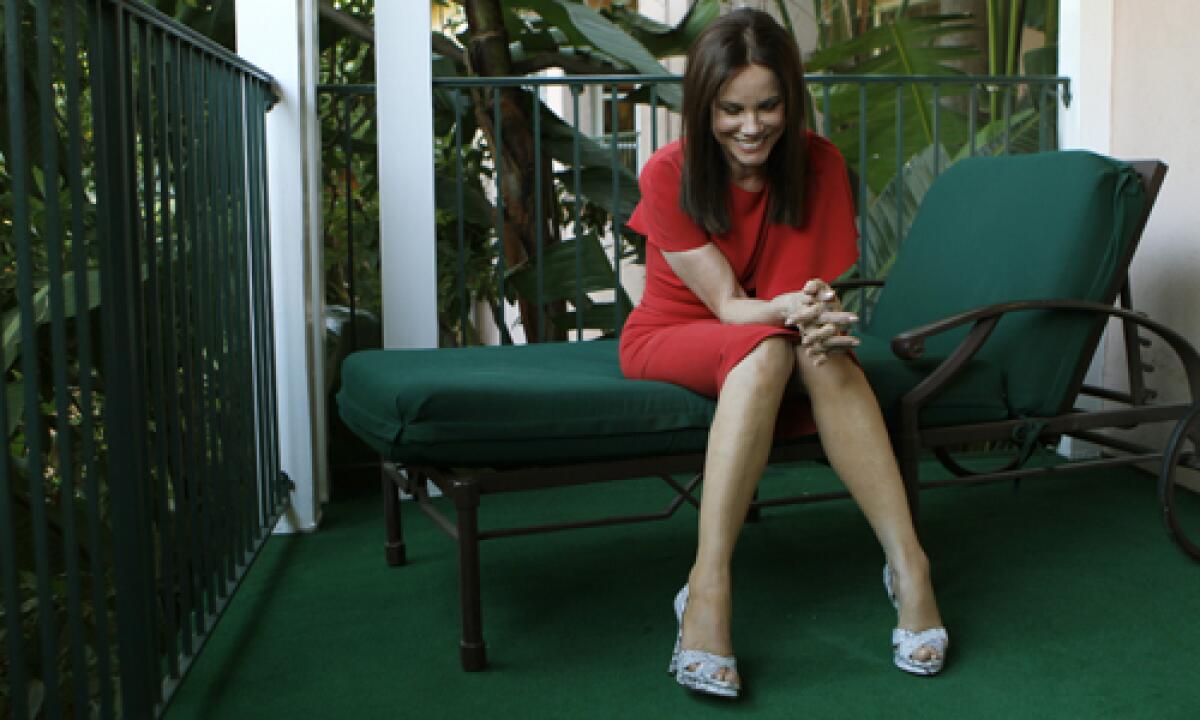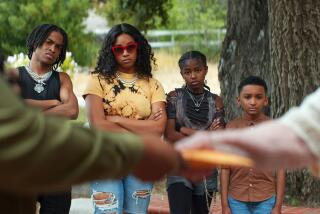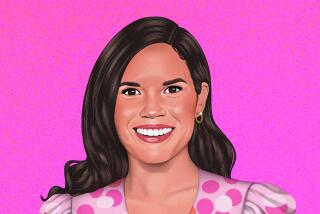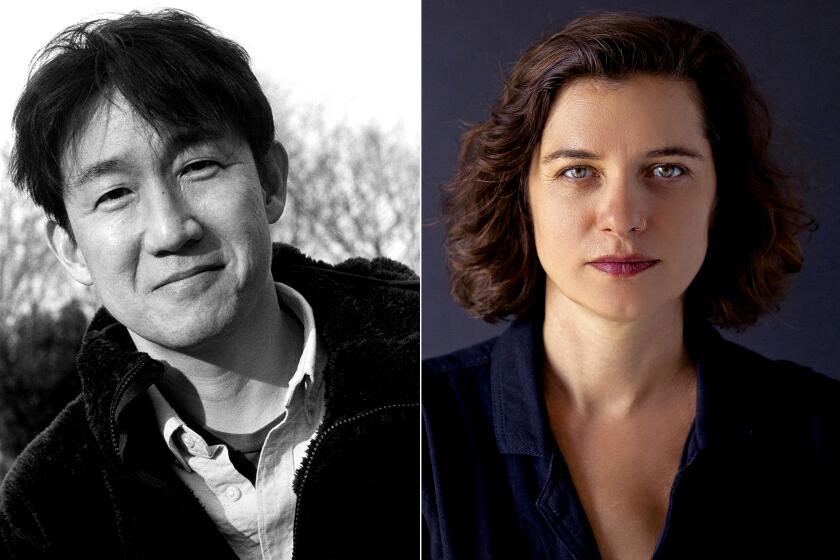Barbara Hershey’s intimate dance

Director Darren Aronofsky’s film “Black Swan” unfolds on pointe shoes, but it is not stepping lightly into the award field. The provocative film features a searing performance from Natalie Portman as Nina, a ballerina quite possibly driven to madness in her search for perfection. Ratcheting up the drama further is Barbara Hershey as matriarch Erica, a former corps ballerina who gave up everything to mother, and often smother, her talented, potentially unstable child. The two live in stifling quarters made even more oppressive by their dysfunctional relationship. Erica wakes, feeds and dresses Nina in a room decorated for a little girl — a room that Aronofsky had Hershey help design. In a recent phone interview, Hershey praises the director for similarly supporting her design for Erica, a woman with a twisted love for her daughter.
Is this the creepiest role you’ve played? I don’t want to say she’s a monstrous person, but ...
People say she’s a mother from hell, I say she’s a mother in hell. That’s the difference. She obviously has great ambition for Nina and supports her, and completely takes care of her so she can focus on the ballet, and loves her and adores her. Nina is her life. But on the other hand, she’s at times jealous, at times suffocating, at times too involved, but also she knows that her daughter is delicate mentally, and she’s frightened to death for her.
How did you and Natalie go about forging the necessary bond behind their tortured relationship?
I’ve never had my hands on an actress as much as I had my hands on her! Taking her earrings out and undressing her, it was incredible, the proximity of the two characters. I know it was helpful. I was also lucky in that I was basically on one set. I was in the last three weeks of shooting. They already had done all of the ballet. We had this intensity in this claustrophobic apartment that we could explore, and as much as possible Darren shot in order, so that helped a lot too.
It was a bit like Polanski’s “Repulsion” in that apartment.
While we were doing it, I kept saying this is like “Swan Lake” meets “Repulsion.” It’s its own film too; you can compare it to other films, but it really is Darren’s vision.
Had you been a fan of his films already?
Oh, yes.
What first drew you to his work?
I think what impressed me initially was his assurance as a filmmaker. It’s so hard to express yourself with film in a unique way. He has his mark. You can look at his film and say, “This is a Darren Aronofsky film.” Obviously, he has a real mastery in terms of environment and feeling, how to make people feel things, which is incredible.
Yes, I’ve never felt so tense watching a ballet in my life. What was he like to work with?
The tragedy to me as an actress sometimes is when you go home at night and feel, “Oh, I wish I’d really explored that more.” You never felt that with Darren. You felt peacefully used up when you came home at night, which was a great feeling. You can say any idea to him, and, whether or not he agrees with it, he’ll grab it and explore it with you and encourage you. He had me write letters as Erica to Nina, which is an amazing exercise actually. And then during filming, he would try things 10 different ways, and then use one or two in editing.
Did you take Erica home with you, or are you able to throw off your characters at the end of the day?
I don’t work one way. I work different ways for different characters because they have different kinds of requirements. But I always just look in me. If we’re willing to look deep enough and hard enough inside ourselves, we can find anybody. I had a lot of empathy for Erica. That’s partially what happens when you play a character. I asked a defense lawyer once — actually, I ask lots of them, because I find the answer so intriguing — how do you defend a client that you know is guilty? A public defender said the most fantastic thing, and I’ve used it in acting a lot: He said you go back to the moment in their lives when they changed, and that’s the basis of empathy. No matter what they become, there’s some moment when their innocence changes. And so to that degree, no matter what character you’re playing, you always find that place.
More to Read
The biggest entertainment stories
Get our big stories about Hollywood, film, television, music, arts, culture and more right in your inbox as soon as they publish.
You may occasionally receive promotional content from the Los Angeles Times.






